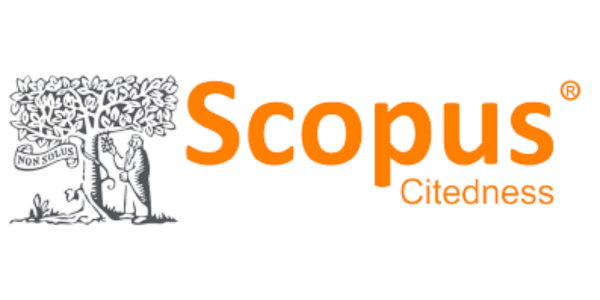The Role of AI, Filter Bubbles, and Echo Chambers in Political and Religious Polarization on Social Media
DOI:
https://doi.org/10.21274/dinamika.2025.25.2.102-118Keywords:
Artificial Intelligence, Filter Bubble, Echo Chamber, Political Polarization, Religion, Social MediaAbstract
This research is motivated by the existence of AI, filter bubbles, and echo chambers, which narrow the scope of interaction and isolate users from diverse perspectives. In Indonesia, politicians often use religion as a political tool, which further exacerbates the situation. This research aims to understand how the interaction between AI, filter bubbles, and echo chambers impacts political and religious polarization on social media. This study employed a qualitative approach, utilizing a literature review method that analyzed relevant journal articles. The results indicate that political and religious polarization occurs when society is divided into groups with increasingly divergent views and values, thereby exacerbating social tensions and widening the gap between these groups. AI makes extreme political content more likely to be shared than moderate information. Filter bubbles limit exposure to differing views and reinforce confirmation bias. The echo chamber exacerbates polarization by encouraging individuals to interact only with those who share their beliefs. Individuals or groups vulnerable to polarization are those who have difficulty accepting new information, only consume content that aligns with their beliefs, perceive other groups as being unobjective or biased, and have low digital awareness and literacy. The principle of Islamic brotherhood can help mitigate political and religious polarization by teaching the importance of mutual respect for differences and maintaining harmony among Muslims.
References
Amendola, M., Cavaliere, D., De Maio, C., Fenza, G., & Loia, V. (2024). Towards Echo Chamber Assessment by Employing Aspect-Based Sentiment Analysis and GDM ConsensusMmetrics. Online Social Networks and Media, 39–40(February), 100276. https://doi.org/10.1016/j.osnem.2024.100276
Cheng, H. P., & Swee, E. L. (2024). Farewell President! Political Favoritism, Economic Inequality, and Political Polarization. European Journal of Political Economy, 81(September 2023), 102483. https://doi.org/10.1016/j.ejpoleco.2023.102483
Colina, Y. (2020). Government Policy in Preventing the Politicization of Religion in the 2024 Election.Journal of Religious Policy, 3(2), 19–36. https://doi.org/DOI: https://doi.org/10.31330/repo.v3i2.44
Creswell, W. J., & Creswell, J. D. (2018). Research Design: Qualitative, Quantitative adn Mixed Methods Approaches. In SAGE Publications (5th ed., Vol. 53, Issue 9). https://books.google.co.id/books/about/Research_Design.html?id=s4ViswEACAAJ&redir_esc=y
Donkers, T., & Ziegler, J. (2023). De-Sounding Echo Chambers: Simulation-Based Analysis of Polarization Dynamics in Social Networks. Online Social Networks and Media, 37–38(2023), 100275. https://doi.org/10.1016/j.osnem.2023.100275
Ekström, A. G., Niehorster, D. C., & Olsson, E. J. (2022). Self-Imposed Filter Bubbles: Selective Attention and Exposure in Online Search. Computers in Human Behavior Reports, 7(p. 100226). https://doi.org/10.1016/j.chbr.2022.100226
Fang, X., Heuser, S., & Stötzer, L. S. (2025). How In-Person Conversations Shape Political Polarization: Quasi-Experimental Evidence from a Nationwide Initiative. Journal of Public Economics, 242(January), 105309. https://doi.org/10.1016/j.jpubeco.2025.105309
Ferraz de Arruda, H., Oliveira, K. A., & Moreno, Y. (2024). Echo Chamber Formation Sharpened by Priority Users.IScience, 27(11), 111098. https://doi.org/10.1016/j.isci.2024.111098
Grünwald, L., & Patterson, J. (2025). Roadblocks of Polarization: Interpretive Mechanisms of Opposition to a Speed Limit Policy on German Highways. Energy Research and Social Science, 122(February), 104009. https://doi.org/10.1016/j.erss.2025.104009
Hidayah, A. R., & Nur, M. A. (2024). Analisis Tantangan Moderasi Beragama di Era Digital melalui Perspektif Teori Filter Bubble dan Echo Chamber. Jurnal Sosial Humaniora, 17(2), 150. https://doi.org/10.12962/j24433527.v17i2.22119
Iqbal, M., Singh, K., Khan, S., Osho, O., Sidnam-Mauch, E., Bannister, N., Caine, K., & Knijnenburg, B. (2025). Teaching AI Awareness in Middle School Classrooms: Design, Implementation and Evaluation of Two Education Modules on Algorithmic Bias and Filter Bubbles. Computers and Education: Artificial Intelligence, 8(December 2024), 100425. https://doi.org/10.1016/j.caeai.2025.100425
Karim, S. (2021). Polarisasi Politik Islam Di Tengah Pandemi Covid-19 Dan Peta Politik 2024. SENASPOLHI 3 FISIP UNWAHAS 2021. https://publikasiilmiah.unwahas.ac.id/index.php/SENASPOLHI/article/download/5648/3763
Martin-Gutierrez, S., Losada, J. C., & Benito, R. M. (2023). Multipolar Social Systems: Measuring Polarization beyond Dichotomous Contexts. Chaos, Solitons and Fractals, 169(September 2022). https://doi.org/10.1016/j.chaos.2023.113244
Olsson, E. J., Madison, G., & Ekström, A. G. (2025). Is Google Liberal on Immigration? Attitude Bias, Politicisation and Filter Bubbles in Search Engine Result Pages. Heliyon, 11(3). https://doi.org/10.1016/j.heliyon.2025.e42020
Pariser, E. (2011). The Filter Bubble: What the Internet is Hiding from You. Penguin Press. http://www.worldcat.org/search?qt=worldcat_org_all&q=1594203008
Phillips, J. B. (2024). Affective Polarization and Habits of Political Participation. Electoral Studies, 87, 102733. https://doi.org/10.1016/j.electstud.2023.102733
Shohib, M., Al Masithoh, S., & Al-Ghifari, F. H. (2024). Ukhuwah Islamiyah dan Interaksi Harmonis Antarumat Beragama di Indonesia: Kajian Tafsir Ayat-Ayat Ukhuwah dalam Al-Qur’an. Al Furqan: Jurnal Ilmu Al Quran Dan Tafsir, 7(2), 493–512. https://doi.org/10.58518/alfurqon.v7i2.2934
Tanjung, M. T. H., & Abdullah, A. (2025). The Concept of Communication in the Quran; Analysis of Theory and Practice. International Journal of Education, Social Studies, And Management (IJESSM), 5(1), 72–85. https://doi.org/10.52121/ijessm.v5i1.629
Widiatmaka, P., Nuryadi, M. H., Sugiyanto, A., & Yani, A. (2024). Politik agama di Indonesia: politisasi agama Islam dalam kontestasi pemilihan umum. Humanika: Kajian Ilmiah Mata Kuliah Umum. 24, 2, 127–140. https://doi.org/10.21831/hum.v24i2.71424.
Wu, Y., Li, L., Yu, Q., Gan, J., & Zhang, Y. (2023). Strategies for Reducing Polarization in Social Networks. Chaos, Solitons and Fractals, 167(January), 113095. https://doi.org/10.1016/j.chaos.2022.113095
Yen, D. A., & Dey, B. (2019). Acculturation in the Social Media: Myth or Reality? Analysing Social-Media-Led Integration and Polarisation. Technological Forecasting and Social Change, 145(April), 426–427. https://doi.org/10.1016/j.techfore.2019.04.012
Young, D. J., Madsen, J. K., & De-Wit, L. H. (2025). Belief Polarization can be Caused by Disagreements over Source Independence: Computational Modelling, Experimental Evidence, and Applicability to Real-World Politics. Cognition, 259(March), 106126. https://doi.org/10.1016/j.cognition.2025.106126
Yunus, F. M., Yasin, T. H., & Rijal, S. (2023). Politik Identitas dan Politisasi Agama Dalam Konteks Pemilu di Indonesia. Jurnal Sosiologi Dialektika Sosial, 9(2), 121–137. https://doi.org/10.29103/jsds.v9i2.12590
Zahro, F., & Saputri, F. I. . (2024). Polarisasi Politik di Lingkungan Pondok Pesantren dalam Pemilihan Umum 2024. Manabia: Journal of Constitutional Law, 4(01), 21–36. https://doi.org/10.28918/manabia.v4i01.8663









